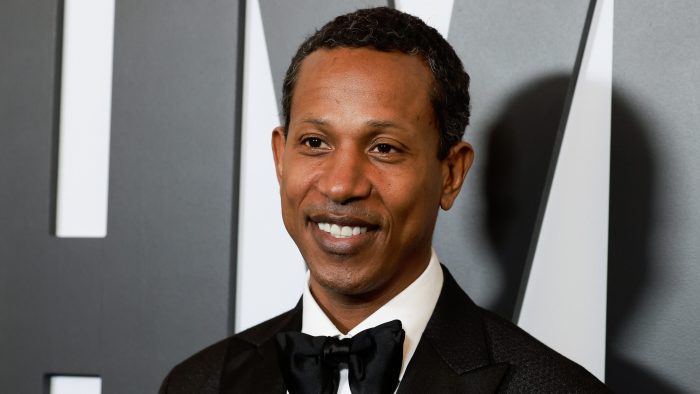One of the main reasons fellow Andscape culture writer Justin Tinsley and I were tasked with being co-executive producers for The Honorable Shyne was because of our experience as music journalists. The documentary, which chronicles Moses “Shyne” Barrow’s rise to superstardom, incarceration and reemergence as a political leader, fit firmly in our wheelhouse because his prime rap years came in the early 2000s — right in the heart of our hip-hop fandom. I approached my time helping with the documentary, which rose to the top 10 shows in its debut week on hulu, as a chance to help tell a story about hip-hop. I came away from the project with an understanding about a man in conflict, at odds with himself and his past and striving to forge a path forward.
Shyne’s story illustrates the American dream: A poor Black immigrant finding his way to America and rising from nothing to becoming one of rap’s biggest stars. It’s also a story about how the American criminal justice system and the music industry chews up and spits out so many young Black folks. To casually follow Shyne’s story is to think of it as just another young Black man who got caught up in a bad situation and never recovered. After all, his rap career was effectively derailed when he was sentenced to a decade in prison in 2001 for the 1999 shooting at Club New York in Manhattan. But what inspired me about Shyne’s story is his refusal to let that devastation define him.
In 2021, I spent time in New Orleans with former No Limit rapper McKinley “Mac” Phipps, who had just been released from prison after spending 21 years inside for manslaughter, a crime he denied committing. I thought about Mac while listening to Shyne’s story. They were both avatars for a system that put rap on trial as much as it put the individual men. Mac’s story was about how hip-hop lyrics can be used to prosecute someone in the face of overwhelming evidence of their innocence. Similarly, Shyne’s trial sensationalized hip-hop’s connection to violence in a city that was thirsty for a head on a platter.
Both Shyne and Mac came out of prison vastly different people from when they entered. For Mac, it was the amount of time he spent inside, where he transitioned from a teenage rapper to a man after two decades locked away. For Shyne his transformation came from his faith when he converted to Orthodox Judaism while he was behind bars. When I look at people like Shyne and Mac, I wonder how they can persevere while locked in a cage, and their answers are inspiring.
While Shyne’s rap stories are what drew me to the project, it’s his journey as a man that makes me so proud to have a hand in telling his story. And we really get to see that journey after he’s rapped his final bars in his rap career.
Shyne came into the film willing to discuss his worst moments — the time after he left prison in 2009 when he was lashing out, frustrated by watching a new crop of rap stars emerge in the void left by his absence. He was rudderless. As rudderless as anyone who lost a decade to a prison system bent on tearing him down can be. And even more because he got locked up when superstardom was on the tips of his fingers.
The raspy-voiced rapper could have let those mishaps define him, but that’s where Shyne’s story resonates for anyone, rap fan or not. Shyne’s second act, the one where he finds purpose in community and family, where he uses his natural charisma and genuine brilliance to become a political leader and motivational speaker.
Related Story
Andscape Presents: ‘Rap Stories’Read now
I can’t discuss Shyne’s reemergence without talking about the Sean “Diddy” Combs of it all. Combs, the disgraced hip-hop mogul who signed Shyne to his Bad Boy Records label and helped launch his career, is the elephant in the room throughout the entire documentary and in Shyne’s life. So many of the artists who came up under Diddy — from G Depp and Mase to The Notorious B.I.G. — have suffered dire consequences. Shyne’s name was always included in that list, having lost a decade to incarceration. And yet Shyne’s approach to healing and moving forward is as inspirational as his ability to overcome what he sees as a sabotage of his life and career.
These are the lessons that I didn’t expect to gain from a story about a hip-hop star from my childhood. These are the inspirational moments that will resonate for people who aren’t already invested in a rapper from Brooklyn by way of Belize going into the documentary. These are the aspects that make me proud to be associated with telling Shyne’s story.
David Dennis Jr. is a senior writer at Andscape, and the author of the award-winning book “The Movement Made Us: A Father, a Son, and the Legacy of a Freedom Ride.” David is a graduate of Davidson College.



